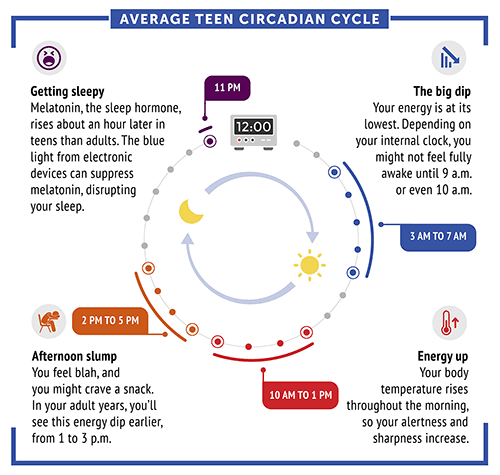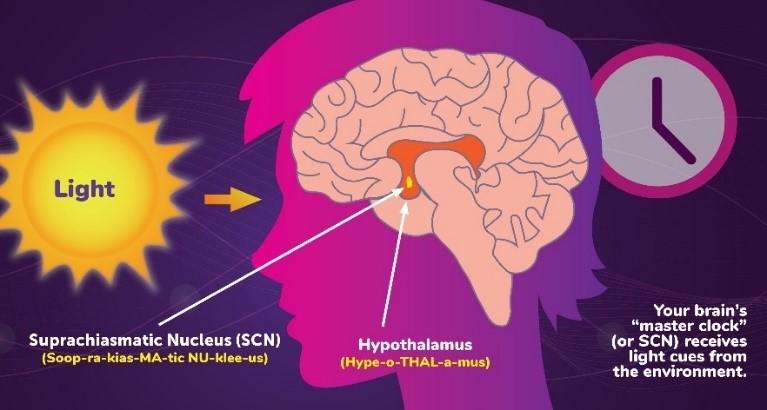Circadian rhythms are physical, mental, and behavioral changes that follow a 24-hour cycle. These natural processes respond primarily to light and dark and affect most living things, including animals, plants, and microbes. Chronobiology is the study of circadian rhythms. One example of a light-related circadian rhythm is sleeping at night and being awake during the day. The Average Teen Circadian Cycle image shows the circadian rhythm cycle of a typical teen.

Circadian rhythm cycle of a typical teenager. NIGMS





